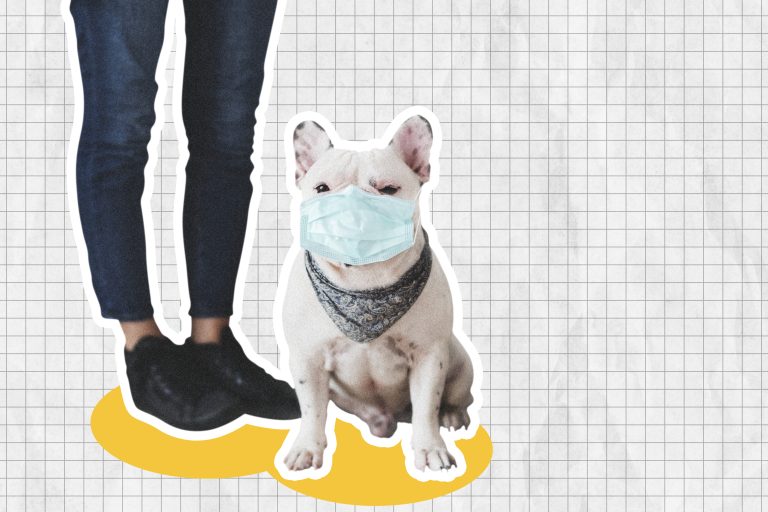Canine coronavirus is a viral pathogen that causes an infectious disease in dogs regardless of age, breed or other factors. Although puppies are more likely to get the disease, the truth is that any dog can be affected.
These viral infections can be of significant concern to pet owners due to the potential impact on the health and welfare of the animals. Although not equivalent to the SARS-CoV-2 virus, which generated the global COVID-19 pandemic, canine coronaviruses are an important aspect of domestic animal health, which is why their understanding and associated preventive measures are essential to protect and maintain dogs’ health.
CONTENT:
Types of Canine Coronavirus
Canine coronavirus types represent two distinct variants with different impacts on dogs and different modes of transmission and manifestation.
-
Canine Enteric Coronavirus (CEC)
It is known for its impact on the intestinal tract of dogs. It usually manifests as mild to moderate diarrhea accompanied by weight loss. In rare cases, especially in young dogs or those with weakened immune systems, CEC can lead to severe complications. Transmission of this type of coronavirus occurs mainly through contact with infected feces and is commonly found in animal shelters or dog-crowded environments. It is important to note that there are currently no common vaccines available for CEC. In the treatment of cases of SCC, the focus is on managing symptoms and associated complications.
2. Canine Respiratory Coronavirus (CRCoV)
It is associated with upper respiratory tract infections in dogs. This virus causes symptoms such as cough, runny nose and watery eyes. Being contagious between dogs, it is commonly spread in crowded environments such as shelters or animal care centers. Although there is no specific vaccine for CRCoV, some vaccines designed to prevent kennel cough may provide some protection against this virus. Treatment consists mainly of managing symptoms and possible respiratory complications in dogs affected by CRCoV.
In both cases, prevention remains a crucial component. Limiting exposure to potential sources of infection, maintaining proper hygiene, and regularly consulting your veterinarian to assess your dog’s health are essential to managing and preventing the spread of these coronaviruses among the canine community.

Symptoms of this disease
Symptoms associated with canine coronaviruses are varied and depend on the specific type of infection. In the case of canine enteric coronavirus (CEC), the most common manifestations include diarrhea, which can range from mild to moderate, weight loss, and in some cases, affected dogs may also experience episodes of vomiting. These symptoms can create discomfort and affect the overall health of the pet. In severe cases or in young or immunocompromised dogs, CEC can cause serious complications, often requiring intensive medical management.
In contrast, in the case of canine respiratory coronavirus (CRCoV), the characteristic symptoms are directed towards the upper respiratory tract of dogs. A cough is a common symptom, accompanied by a runny nose and watery eyes. These signs indicate a respiratory tract condition and can affect the dog’s breathing and comfort. In some cases, dogs may also show lethargy, lack of appetite and a general decrease in energy during CRCoV infection.
It is important to note that in both types of canine coronavirus infections, symptoms can vary in severity from one animal to another. At home, owners can manage some mild cases, while others might necessitate specialist medical attention and specific treatment. Pet owners should be alert to behavioral or health changes in their dog and seek veterinary advice if unusual symptoms occur or if a coronavirus infection is suspected. Early intervention can be crucial to the proper management and treatment of these conditions in dogs.

Treatment
Treatment for canine coronaviruses is mainly symptomatic and focuses on managing clinical manifestations and keeping the dog comfortable and healthy.
In the case of canine enteric coronavirus (CEC), the therapeutic approach focuses on compensating fluid and electrolyte losses due to diarrhea. Adequate fluid intake is essential to prevent dehydration, and in some cases, medications prescribed by your veterinarian to control diarrhea may be necessary. Veterinarians may also recommend feeding a bland diet to support the recovery of the intestinal tract and provide essential nutrients for the dog to regain strength.
For canine respiratory coronavirus (CRCoV), treatment focuses on the animal’s comfort and maintaining optimal respiratory function. Rest and hydration are essential to help your dog recover. In some cases, your veterinarian may recommend respiratory support therapy to relieve symptoms and facilitate breathing.
It is important to note that there are no specific treatments or antiviral drugs approved to treat canine coronaviruses. Thus, management focuses on supporting the animal’s general condition, controlling symptoms, and maintaining its comfort during the infection.
In conclusion, although coronaviruses affect the health of dogs, they are not similar to SARS-CoV-2, the virus responsible for the global COVID-19 pandemic. For the prevention and management of viral infections in dogs, regular veterinary consultation for up-to-date information on vaccines, proper care and maintenance of proper pet hygiene are essential. Providing a healthy environment and a balanced diet can help reduce the risk and control the spread of viruses among dogs.

